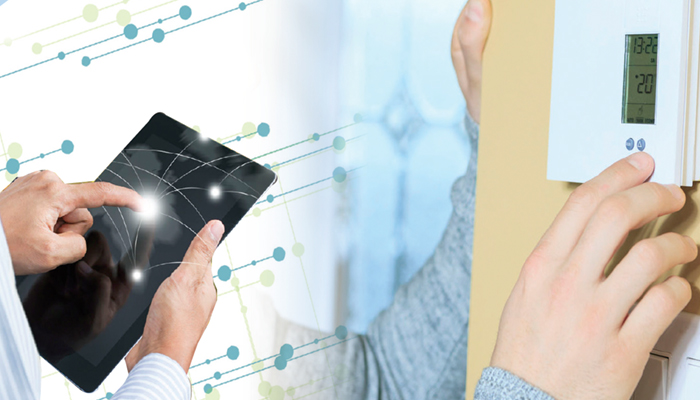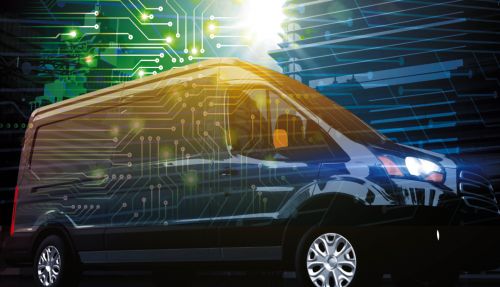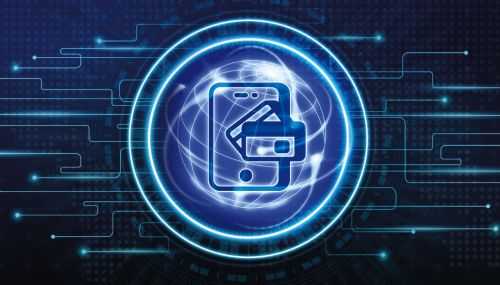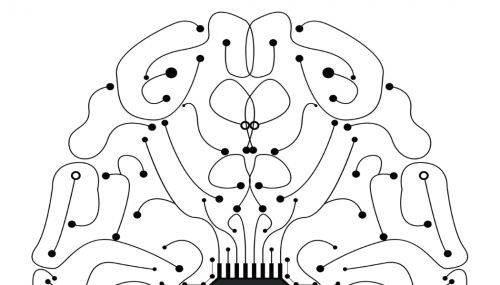All
Integration Improves the Customer’s Experience
by John MacKenna

Technology continues to create new opportunities for energy marketers, and one software executive believes the next phase for many companies will be to improve connections among systems and deliver a more satisfying customer experience.
Aaron Cargas, Vice President at Cargas, in Lancaster, PA, recently told Oil & Energy that stronger connections between systems are opening new doors for energy marketers. “One of the big things we have been talking about recently is the opportunity to have systems be more connected throughout the organization. You need to have a really good back office system and have it very connected to other systems, such as accounting for reporting and CRM (customer relationship management) for sales and marketing. One of the big opportunities marketers have now is to take data that has been building up in your back-office system and use it in a CRM system to better market and sell to your existing customers and gain new customers.”
While technology is critical, Cargas said, the core value proposition of many energy companies still applies. “The most important thing is to be committed to your customers. You hear stories of how companies overcome obstacles to take care of customers in the middle of a blizzard. That is the core value.
“Creating a great customer experience is another way to achieve that. It involves technology and implementing new things and connecting them together. It is just an extension of the outstanding service they have been providing for a long time. A lot of owners understand this.”
Integrating CRM
CRM is a category of software offered by many companies that leverages data about customers and prospects to help companies interact more effectively and implement more effective sales and marketing strategies.
Employees at Cargas have seen interest in CRM grow in recent years, the vice president said. The company is itself a reseller of Microsoft CRM, and Cargas says that bringing good data into a CRM system is a great way to strengthen a company. “In addition to just improving your core business with the back-office system, it is important to connect systems together, such as having your website portal feeding directly into your back office. That is the best way to leverage all these technologies.”
When systems are truly interconnected, data flows to where it is needed, according to Cargas. For example, a fuel driver or service technician can spot a potential equipment replacement opportunity at a customer’s home and report it via a mobile device to the back-office system. From there it can flow automatically into the CRM system where it can go into the sales queue and auto-generate a personalized e-mail to the customer.
Similarly, a new customer can place a fuel order through the website portal, and a well-connected system can create the new account in the back office, pass the order to dispatch, and then assign the delivery to the nearest driver. Delivery requests can be filled the same day, and the back office can also signal the CRM system to begin marketing a service contract and/or automatic delivery to the new customer. The back-office system will receive information from the CRM system, so any CSR who takes a call from the customer can see at a glance what marketing campaigns they have received.
Phase Three
In the case of mobile technology, Cargas said it is time to stop viewing mobile as its own standalone technology and begin embracing the benefits of a connected mobile system that enables data to flow freely throughout the company.
He says the energy industry is in its third phase of applying mobile technology. The first phase involved automating processes to eliminate the use of paper. The second phase was about optimizing processes by using software such as vehicle routing while leveraging mobile bandwidth. In the current phase that has been unfolding since 2015, companies are connecting processes from end to end to provide the customer with a better experience.
Customer experience is an important touchpoint in a world where e-commerce companies like Amazon have set the bar, according to Cargas. “We think of Amazon as an e-commerce company, but what they really are is a massive technology company that is in e-commerce. “You can apply their lessons on a much smaller scale, not just in energy but in any industry,” he said. “Everybody has to be in the technology business. This is how you have to compete, because customers expect to be able to interact with you.”
It is unrealistic to expect a fuel company to perform online like Amazon, according to Cargas. “But what owners can do is look to best-of-breed systems for the different functions and have the best combination of mobile and back office. They can use a modern architecture that enables their technology partners to connect to the CRM and the web portal, and get all that interconnected.”
He acknowledged that implementing the best technology is a “big deal” for energy companies on tight budgets. “What you can do, no matter where you are in your journey, is put a technology roadmap together and look for good partners to work with you.” He noted that there seems to be an increased focus in the industry on using tools like CRM and marketing automation and to upgrade accounting software.”
He recommends that owners evaluate each function in the organization and take a close look at systems they are using and how information is flowing between systems. He wants companies to look at their back office, mobile, accounting and CRM and find better ways to interconnect. This will lead to better reporting and stronger sales and marketing.
Cargas is looking to accelerate the process for its clients by integrating CRM with the Cargas Energy back office, so that companies do not have to interconnect the systems themselves.
New Mobile Platform
In a related development, Cargas recently made a significant addition to its product line when it made its mobile delivery solution available on both Windows and Android. “The devices have gotten much better because of smartphones and tablets, and the price-to-performance ratio of an Android tablet is a lot better than some other devices. Technology is evolving very rapidly, and it is driven by consumer tech. We are trying to pick from the best of that and apply it wherever we can.” Training drivers on in-cab mobile devices is rarely a problem, according to Cargas, because drivers, like everyone else, already use a lot of smartphone technology and are quick to learn something new.
The software company is also working with different tank monitoring providers to ensure that monitoring data can integrate directly into the Cargas Energy delivery forecasting system. “We’re seeing a lot more options coming into the market,” he said. “There used to be just a handful of companies, but now we are seeing a lot more startups and new players.”
Related Posts
 What’s Next in Boiler Technology
What’s Next in Boiler Technology
Posted on June 25, 2025
 Data Delivers!
Data Delivers!
Posted on April 28, 2025
 Harnessing Payment Data to Increase Profitability
Harnessing Payment Data to Increase Profitability
Posted on March 10, 2025
 DeepSeek Is Our AI Wake-Up Call
DeepSeek Is Our AI Wake-Up Call
Posted on March 10, 2025
Enter your email to receive important news and article updates.
